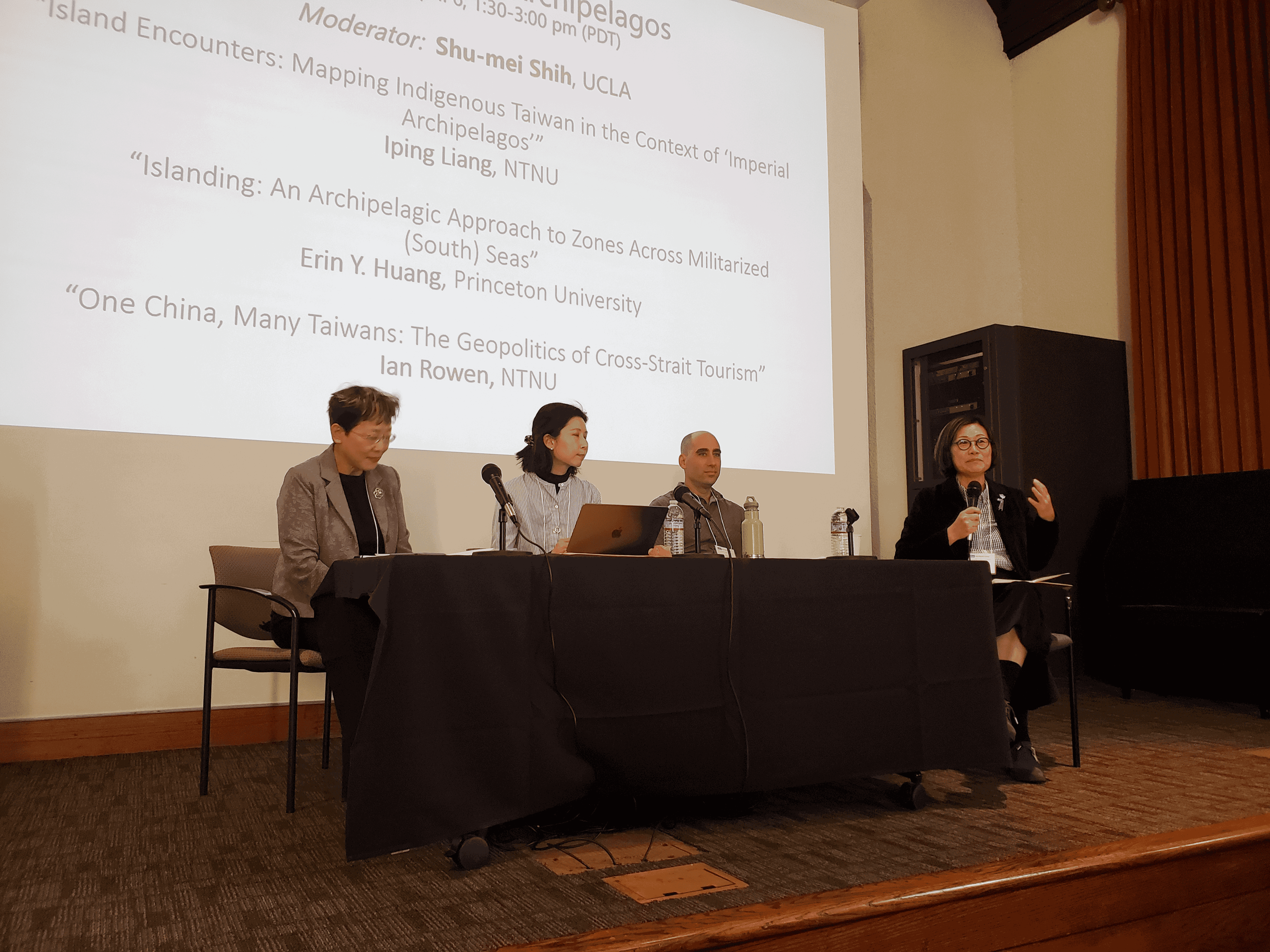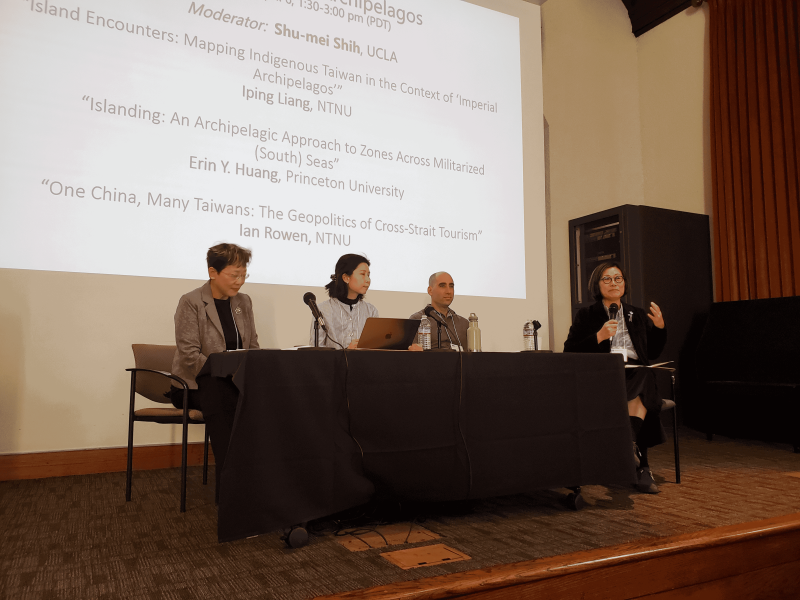UCLA Asia Pacific Center hosts Transculturation in Taiwan conference

The UCLA Asia Pacific Center presented a 2-day UCLA–NTNU Taiwan Studies Initiative Conference on the subject Transculturation in Taiwan, on Thursday April 6 and Friday, 7, 2023 in the Humanities Conference Room in Royce Hall. This was the first time this annual conference was offered in person since 2019, following two online conferences in recent years. The conference was organized by Shih Shu-mei, is Professor of Comparative Literature, Asian Languages and Cultures, and Asian American Studies, and the Irving and Jean Stone Chair in the Humanities at UCLA.
Professor Shih said that the conference had two goals. The first was to broaden the content of Taiwan Studies by bringing the subject of transculturation, a scholarly concept that arose from the Caribbean experience, to a comparative study of the case in Taiwan. The second goal was to gather together younger scholars in Taiwan studies in the US and give them an opportunity to interact with more senior scholars from Taiwan. Among the presenters were three professors from National Taiwan Normal University: Prof. Joan Chiung-huei Chang, Prof. Lin Fang-Mei, and Prof Liang I-Ping, and Assistant Professor Ian Rowen. Most of the American scholars who gave presentations at the conference are assistant professors, together with three graduate students, and thereby serve as an incubator of some sort for the next generation of scholars in Taiwan Studies.
The participants traveled from Taiwan and from six US states as well as Washington DC. Over 50 people attended the conference on the first day, and approximately 40 attended on the second day. Apart from the moderators and scholars giving opening and closing remarks, fifteen scholars presented their work in five panels, and the presenters continued their discussions with participants over group dinners each day.
The Transculturation in Taiwan conference focused on the cultural implications of Taiwan’s complex modern history in which various cultures and forces have encountered and clashed with each other. These include indigenous communities, Han settler colonialists, and exogenous colonialists originating from the Netherlands, Japan, China, and the US. Scholars who presented their research at the conference were rooted in a variety of humanities and social sciences disciplines. They examined media as diverse as literature, music, theater, puppetry, film, photography, political movements, tourism, and philosophy and incorporated sources from Taiwan as well as examples from other Sinophone areas and diaspora communities.
The first panel, on Thursday, examined Imperial Archipelagos. Scholars gave presentations on various historical and contemporary views of Taiwan as an island or archipelago, analyzing comparative cases such as Hawai‘i and the Philippines, examining the impact of cross-Strait military tensions, and analyzing different concepts of Taiwan in the context of tourism from the People’s Republic of China. The focus of the second panel 2 was on Indigeneity and the Settler Colonial Present. The presenters considered Taiwan’s indigenous cultures and their impact on how Taiwanese view themselves in the contexts of East Asia and Austronesia. Their papers included extensive discussion of literary works such as the 2014 novel Witch Way (巫旅) by Puyuma author Badai, and recent representations of indigenous communities in film.
Panel 3 on Friday included three papers that considered representations of the Japanese colonial period in Taiwan (1895–1945). Laura Jo-han Wen and Lin Fang-Mei focused on cinema, with discussions of early war films and the Taiwanese language film The Bride Who Has Returned from Hell (itself an adaptation of an English Gothic romance novel), and Jasmine Yu-Hsing Chen traced the history of Taiwanese puppetry and its depictions of Japan and Japanese swordsmen in this art form. Panel 4, on Transculturation and Transcolonial Translations, featured two presentations, one by Joan Chiung-huei Chang and one by Lucas Klein, that analyzed various literary works and their relationships with the Taiwanese and Sinophone canons, giving particular attention to translation and discourses of multiculturalism. Lily Wong’s paper then discussed transnational connections among social justice movements for decriminalization, demilitarization, and migrant labor justice in various anticolonial contexts.
The conference concluded with a Young Scholar Showcase panel that presented the work of three graduate students: Faye Qiyu Lu from UCLA, Lin Hsin-hui from National Cheng-chi University, and Raymond Kun-Xian Shen from UCLA. The scholars on this panel analyzed wide-ranging sources from New Confucian philosophy, science fiction, video ethnography, and street photography.
The faculty and students who participated in the conference expressed gratitude for this opportunity to once again gather in person and participate in stimulating scholarly exchanges. The Asia Pacific Center looks forward to hosting future annual conferences as the UCLA–NTNU Taiwan Studies Initiative enters its seventh year.

